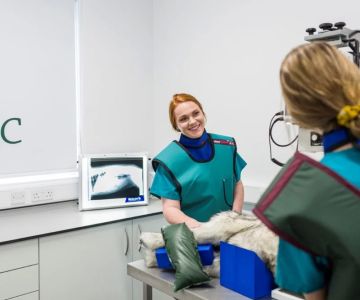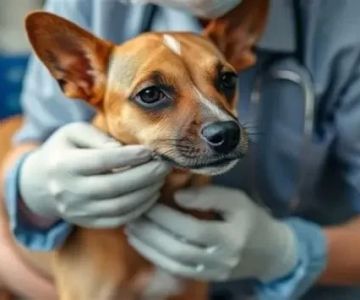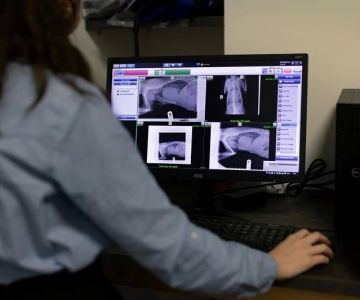Who Is a Veterinarian? Understanding the Role of Veterinarians in Pet Care
- What Is a Veterinarian?
- Education and Training Required to Become a Veterinarian
- The Different Specialties in Veterinary Medicine
- The Role of a Veterinarian in Your Pet’s Health
- When Should You See a Veterinarian?
- How to Choose the Right Veterinarian for Your Pet
A veterinarian is a highly trained medical professional who specializes in the health care of animals. Much like a doctor for humans, a veterinarian’s job involves diagnosing, treating, and preventing diseases and injuries in pets and other animals. Veterinarians can treat a wide range of animals, from household pets like cats and dogs to exotic animals and livestock. They play a vital role in ensuring that pets live long, healthy lives by providing medical care, advice, and guidance to pet owners.
Veterinarians are essential for the overall well-being of pets. They not only treat illnesses but also offer preventive care and help educate pet owners about how to take care of their pets at home. Their work involves a blend of scientific knowledge, compassion for animals, and the ability to handle various medical and surgical procedures.
Education and Training Required to Become a Veterinarian
Becoming a veterinarian requires years of education and training. It’s not a career path to take lightly, as veterinarians are responsible for the health and lives of animals. Here’s an overview of the education and training process:
1. Undergraduate Education
Most aspiring veterinarians begin their education by earning a bachelor’s degree, typically in a field such as biology, animal science, or chemistry. This phase usually takes about four years. During this time, students take courses in animal biology, anatomy, and other subjects that lay the foundation for veterinary school.
2. Veterinary School
After completing their undergraduate degree, the next step is attending a veterinary school, which typically lasts for four years. Veterinary schools offer a comprehensive education that covers everything from anatomy and physiology to pathology and pharmacology. Students also receive hands-on training, where they work with animals and perform medical procedures under the guidance of experienced veterinarians.
3. Licensing and Specialization
Once veterinarians complete their schooling, they must pass a licensing exam to practice legally in their state or country. Many veterinarians also choose to specialize in specific areas of veterinary medicine, such as surgery, dentistry, or dermatology. These specialists often undergo additional training and certification to offer more advanced care.
The Different Specialties in Veterinary Medicine
Veterinary medicine, like human medicine, includes a wide range of specialties. Some veterinarians choose to focus on specific areas to better address the needs of animals in those categories. Some of the key specialties include:
1. Veterinary Surgery
Veterinary surgeons specialize in performing surgeries on animals. Whether it’s a routine spay or neuter or a more complex surgery, these veterinarians have advanced training in surgical techniques and post-operative care.
2. Veterinary Dermatology
Veterinary dermatologists focus on diagnosing and treating skin conditions in animals, such as allergies, rashes, and infections. This specialty requires a deep understanding of skin diseases and treatments.
3. Veterinary Ophthalmology
Veterinary ophthalmologists specialize in the diagnosis and treatment of eye conditions in animals. They are trained to handle everything from cataracts to retinal diseases.
The Role of a Veterinarian in Your Pet’s Health
A veterinarian plays an essential role in maintaining the health of your pet. They are the primary resource for medical care and advice, ensuring that your pet stays healthy, happy, and safe. Here’s how a veterinarian can contribute to your pet’s well-being:
1. Preventive Care
Preventive care is one of the most critical aspects of a veterinarian’s role. They provide vaccinations to protect against common diseases, advise on proper nutrition, and recommend treatments like flea and tick prevention. Regular checkups help detect potential health issues early, which can prevent more severe conditions from developing.
2. Diagnosing and Treating Illnesses
When your pet falls ill or gets injured, a veterinarian is the professional to turn to for diagnosis and treatment. Whether your pet is dealing with an infection, chronic illness, or emergency injury, a veterinarian uses a range of diagnostic tools (like blood tests and X-rays) to identify the issue and recommend appropriate treatments.
3. Surgery and Specialized Care
Veterinarians also perform surgeries, ranging from routine spaying and neutering to complex orthopedic surgeries. They offer post-operative care and ensure that your pet’s recovery is as smooth and quick as possible. Additionally, veterinarians can provide specialized care for pets with specific needs, such as dental work or cancer treatments.
When Should You See a Veterinarian?
Knowing when to take your pet to the vet is crucial for maintaining their health. Regular checkups are important, but there are also specific situations when you should seek immediate veterinary care. Some signs that indicate you should consult a veterinarian include:
1. Behavioral Changes
If your pet shows unusual behavior, such as lethargy, excessive thirst, or loss of appetite, it could be a sign of an underlying health issue. A veterinarian can assess the situation and provide a diagnosis.
2. Vomiting, Diarrhea, or Difficulty Breathing
Vomiting, diarrhea, or difficulty breathing are signs that something is wrong with your pet. These symptoms can indicate a variety of issues, from infections to poisoning, and require veterinary attention.
3. Visible Injuries
If your pet suffers a cut, bruise, or any visible injury, it’s essential to see a veterinarian. They can treat wounds, perform stitches, and ensure your pet’s injury is properly cared for.
How to Choose the Right Veterinarian for Your Pet
Choosing the right veterinarian for your pet is one of the most important decisions you can make as a pet owner. Here are some tips for selecting the right veterinary professional:
1. Research and Reviews
Look for a veterinarian with positive reviews and a reputation for excellent care. Ask other pet owners for recommendations or check online reviews to get an idea of the quality of care provided.
2. Location and Accessibility
Consider the location of the veterinary clinic. Ideally, it should be close enough to your home for quick access in case of emergencies. Also, check the clinic’s hours of operation to ensure they’re convenient for your schedule.
3. Expertise and Specialization
If your pet has specific health needs (e.g., dental issues or chronic illness), you may want to find a veterinarian who specializes in that area. Research the clinic’s staff and expertise to ensure they can provide the care your pet requires.
In conclusion, a veterinarian is a dedicated medical professional who plays a critical role in maintaining the health and well-being of pets. If you’re looking for a veterinarian who will take care of your pet with compassion and expertise, consider visiting a trusted veterinary clinic like Hidden Brook Veterinary to find the best care options for your furry friend.











